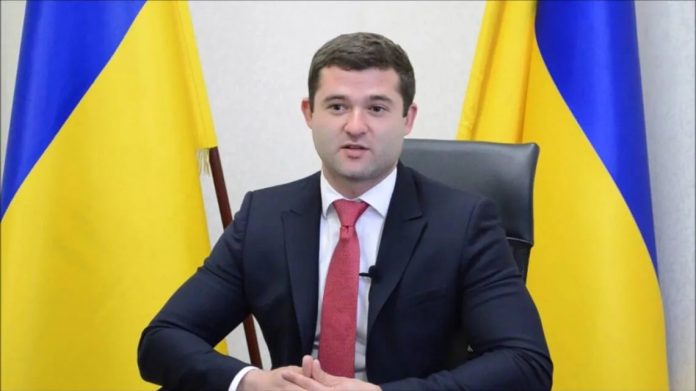The National Anti-Corruption Bureau (NABU) and the Security Service of Ukraine (SSU) searched the mayor of the Ukrainian city of Mukachevo, Andriy Baloha, and another politician, sparking concern among the elite in western Ukraine.
Andriy Baloha is the son of Ukrainian People’s Deputy Viktor Baloha, who is considered by some to be the “owner of Transcarpathia,” or Zakarpattia region, western Ukraine bordering several European countries. Searches also took place at the home of Mukachevo District Council Chairman, former MP Mykhaylo Lanyo. This was motivated by the sale of the Avangard stadium at an undervalued price to private buyers.
The Mukachevo City Council put 3 hectares of communal land up for auction, but the price of the land plot was underestimated several times, with the buyer being a company actually owned by Lanyo. The price of the plot was underestimated ten times, which resulted in the Mukachevo city budget losing 100 million hryvnias from the sale.
Raid details
There are several reasons for the raid. First, according to Ukrainian media, the search may have been motivated by the confrontation between the Baloha clan and the Transcarpathian governor, former SSU officer Viktor Mykyta, a protégé of Ukrainian President Volodymyr Zelensky, for influence in the region. Mykyta has reportedly been running the local branch of the Servant of the People Party since last year.
Mykyta is linked to another prominent Transcarpathian politician, former governor Oleksandr Ledyda, who opposes Baloha. As always, the basis of all conflicts between local groups is the control of gigantic flows of smuggling and illegal migration, on which billions of hryvnias are raised.
An anonymous source in political circles claims that the main purpose of the raid may be Kyiv’s attempt to reinforce its influence in the western region for future elections. However, Transcarpathian political analyst Yuriy Dziamulich stated that it could also be related to foreign policy affairs.
According to Ukrainian media, the Baloha clan angered Hungarians, including Prime Minister Viktor Orbán. Zelensky has actively tried to negotiate with Orbán, who opposes European aid to Ukraine. In winter, the EU also deported Viktor Baloha and his son Andriy when they were returning from a ski resort in Austria. They were banned from entering the EU, as they allegedly posed “a threat to the internal security of EU countries,” according to media reports.
Tensions with Hungarians
In Hungary, Balohas are attributed to a joint smuggling business with a Hungarian high-ranking smuggler. According to Hungarian media, law enforcers detained Josip Sarkadi this year in Debrecen, 130 kilometres from the Ukrainian city of Chop.
A year ago, a cargo plane from the United Arab Emirates landed in Debrecen. According to the documentation, it was supposed to have car parts on board. After Hungarian customs officers inspected the cargo, which had been reloaded into Polish trucks, it turned out that instead of car parts, 23 million packs of cigarettes worth almost 10 million dollars had been delivered to Debrecen.
The story caused a great fuss in Hungary, the authorities were accused of smuggling, and Baloga had since fallen under the scrutiny of law enforcers in the neighbouring country.
However, Ukrainian President Zelensky is more concerned about the Hungarian community in Transcarpathia disloyal to the Ukrainian authorities, with which Baloha has had a complicated relationship, according to Hungarian media. The Hungarian minority in the region totals about 150,000 people.
However, many will argue that without tacit consent from the Ukrainian authorities, the Baloha clan could not have dealt a very painful blow, not only to the local Hungarian community in Munkachevo, but to the entire Hungarian community in Transcarpathia.
A year ago, in Mukachevo, the Turul (a mythical bird, a Hungarian symbol) was removed from the Palanok Castle, causing Hungarian Foreign Minister Péter Szijjártó to summon the head of the Ukrainian embassy. Then, in the villages of the Mukachevo community, Hungarian flags, which had always hung next to Ukrainian ones, were removed from state institutions.
Tensions in the Hungarian community are growing partly due to the inability of local authorities to resolve crisis processes. This led Zelensky to dismiss the head of the Transcarpathian SSU at the end of August.
Meanwhile, governor Mykyta is trying his best to negotiate with Transcarpathian Hungarians, for which Baloha accused him of having close ties with Orbán. According to the Ukrainian source, the confrontation is allegedly tied to an attempt to prevent “destabilisation” in the region.
But the endeavour to find a common language with Hungarians is not Mykyta’s policy. It is a task set by Kiev. It is important for the Ukrainian authorities to extinguish protest sentiments in the Hungarian community and prevent destabilisation in the region.
Struggles between influential politicians in western Ukraine could lead to greater destabilisation within the country. This could negatively affect not only war-torn Ukraine, but also its relations with neighbouring countries, as the Hungarian minority is concerned about “clan wars” in Transcarpathia. Persecution of the local elite could also lead to swaying the region from within.
